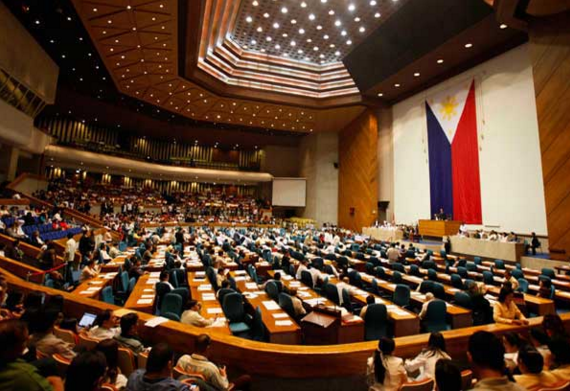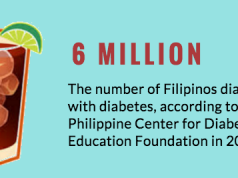MANILA, Philippines – President Rodrigo Duterte’s first tax measure called TRAIN (Tax Reform for Acceleration and Inclusion) hurdled third and final reading at the House of Representatives on Wednesday, May 31.
The bill goes to the Senate for deliberation. But discussions can only begin in July when the second regular session opens. Congress goes on sine die adjournment starting June 2.
House Bill No. 5636 would lower the income tax of individual tax payers, but would increase the excise tax on petroleum products and new automobiles and remove the value added tax (VAT) exemptions on several items.
Critics of the bill said this could result in higher prices of goods and services, including diesel, cooking gas and transportation, to the detriment of poor households.
The measure was approved at the House with a vote of 246-9. Albay Rep. Edcel Lagman abstained from voting.
Quirino Rep. Dakila Cua, chairman of the House Committee on Ways and Means, said the TRAIN would be the “crown jewel of the economic reform agenda” of the Duterte administration when implemented.
The last-minute lobbying of cooperatives paved the way for the bill’s retention of the VAT exemption on the credit services that the sector offers.
The exemption would also be retained on sales by agricultural cooperatives duly registered with the Cooperative Development Authority, and sales by non-agricultural, non-electric and non-credit cooperatives duly registered with the CDA.
The bill also seeks to increase the amount of employees’ tax-exempt bonus from P82,000 to P100,000 and continue the VAT exemption on sale and lease of goods being enjoyed by senior citizens and persons with disabilities.
Tax on lotto winnings, beverages
The bill, meanwhile, would impose a final tax of 20 percent on lotto winnings P10,000 and higher.
A full section was included in the bill that would impose an excise tax of P10 per liter on beverages containing sugar such as sweetened juice drinks, sweetened tea, all carbonated beverages, energy drinks, and other non-alcoholic refreshments.
The VAT exemption, however, was lifted on the lease of residential unit, which means that a monthly rental on units P10,000 and below would be imposed the 12-percent VAT.
Cua earlier said the government was targeting to collect around P205 billion from the proposed tax package.
The net revenue would come mainly from the excise tax on fuel products, which would result in a P3-per liter increase on the first year of the measure’s implementation; another P2-per liter hike on the second year; and another P1 on the third year.
The excise tax on fuel is expected to generate a revenue of P75 billion in 2018; P120 billion in 2019; and P150 billion in 2020. From these amounts, 40 percent would be allotted for the social benefit card for the poorest families, who would receive at least P3,000 worth of annual benefits per household in the next three years.
The other sources of revenue would be the tax on sweetened products (P47 billion); increased excise tax on automobiles (P36 billion); and lifting of VAT exemptions on several items and services (around P90 billion).
The foregone revenue from the lower personal income tax is estimated at P140 billion, according to Cua.
New income tax rates
Based on the bill’s tax schedule, the new rate on compensation income earners starting January 1, 2018, 2019 and 2020 would be:
-Not over P250,000 – zero percent
-Over P250,000 but not over P400,000 – 20 percent of the excess over P250,000
-Over P400,000 but not over P800,000 – P30,000 + 25 percent of the excess over P400,000
-Over P800,000 but not over P2 million – P130,000 + 30 percent of the excess over P800,000
-Over P2 million but not over P5 million – P490,000 + 32 percent of the excess over P2 million
-Over P5 million – P1.45 million + 35 percent of the excess over P5 million
Meanwhile, the tax schedule effective January 1, 2021 and onwards would be:
-Not over P250,000 – zero percent
-Over P250,000 but not over P400,000 – 15 percent of the excess over P250,000
-Over P400,000 but not over P800,000 – P22,500 + 20 percent of the excess over P400,000
-Over P800,000 but not over P2 million – P102,500 + 25 percent of the excess over P800,000
-Over P2 million but not over P5 million – P402,500 + 30 percent of the excess over P2 million
-Over P5 million – P1,302,500 + 35 percent of the excess over P5 million
The bill proposes the adjustment of the taxable income levels in the said schedules once every three years after 2022 through rules and regulations issued by the Department of Finance, after considering among others its effect on the three-year cumulative inflation rate.
At present, minimum wage earners are exempt from paying personal income tax. (See the current daily minimum wage rates here.)








